|
By Tyler Micik
The 152nd Session of the General Assembly concluded last night. This wraps up a busy session in which hundreds of bills were introduced. Many of these bills impact businesses, including our members and the 60,000-plus licensed businesses across the state. If I could describe this session in one word, it would be unprecedented. First, due to the volume of bills introduced and the speed with which they moved through the legislative process, it was challenging for legislators and stakeholders alike to fully discuss the proposals and understand their potential impacts. Second, more committee meetings are being scheduled than ever before, many of which conflict with one another. Lastly, and most notably, the General Assembly passed some highly controversial bills like HS2 for HB350 and SB313. Both bills impact two of Delaware’s largest industries—hospitals and corporate law, respectively—and signify unprecedented steps by the General Assembly. These decisions come at a time when we’re entering uncertain and uncharted economic territory. In good economic times, policy decisions can afford to be “roughly right” but with national Real GDP growth rates shrinking, policy decisions need to be more accurate now than ever before. This includes decisions like the ones mentioned above as well as the state’s budget. Once again, the General Assembly passed the largest budget in state history. The $6.1 billion operating budget (SB325) for FY25 represents approximately a 9% year-over-year growth. Three Republican members of the House opposed the bill, noting that state spending has repeatedly outpaced revenues and claimed this level of growth is unsustainable. The General Assembly also passed a $168 million supplemental budget (SB326) in one-time measures and contingency funds. None of these decisions happen in isolation. It’s our hope that the General Assembly considers the impacts of their policy decisions on businesses collectively so that Delaware businesses can succeed. Their success is important for a state that receives nearly half of its revenues from businesses through things like franchise fees, corporate income tax, and other similar taxes, which in turn saves Delaware taxpayers money among other benefits. Unprecedented policy decisions lack certainty and predictability—things businesses highly value. An overview of the bills that passed :
Other bills headed to the Governor for signature:
Bills that didn’t make it through this year:
WHAT HAPPENS NOW? Any bills that did not make it through this year are considered “dead” and will have to be reintroduced next session if the sponsor intends to work them. Although session is over, the State Chamber’s work continues as we enter a period of political uncertainty ahead of the upcoming elections this fall. While the outcomes of the future elections are to be determined, one thing is for sure—there will be new faces in the 153rd General Assembly with 10 of 21 Senate seats and all 41 House seats up for grabs. We’ll see new people in at least five House seats because several representatives have already announced plans to retire or run for another office. They include Rep. Pete Schwartzkopf (RD14), retiring; Rep. Paul Baumbach (RD23), retiring; Rep. Sean Matthews (RD10), retiring; Rep. Mike Ramone (RD21), Republican candidate for Governor; and Rep. Sherry Dorsey Walker (RD3), Democratic candidate for Lieutenant Governor. With so much change lingering, it’s more important for businesses to get engaged now than ever before. Building relationships with members of the General Assembly is essential to ensuring the interests of your business are heard in Dover. Like customer relationships, establishing and maintaining relationships with elected officials is vital because it helps create a better understanding for all parties and leads to better policy decisions. A great way to do this is by participating in the State Chamber’s Member-to-Member program. The program brings policymakers to your place of business so you can show how your company operates, share your compliments and concerns, and discuss the impact policy proposals—like the ones mentioned above—have on your business and employees. These conversations should highlight important legislation that will likely be reintroduced again next year such as:
The General Assembly will be on recess until January 2025. The State Chamber will continue to do our part to help bridge all sides and advocate for Delaware employers and their employees. To help create a better understanding and shared vision for Delaware's future, please consider participating in our Member-to-Member program, joining a State Chamber policy committee, or attending our events this fall. A seat at the table is waiting for you.
0 Comments
Today wraps up the last day before the final week of session for the 152nd General Assembly. They were off on Wednesday in observance of Juneteenth, so it was a shorter week than normal. However, a couple bills which the State Chamber is following saw movement this week, including:
HB 433 (Unemployment Insurance): Revises the experience rating methodology for assigning unemployment assessment rates to employers under the Unemployment Insurance Code in Delaware, replacing the current benefit wage ratio methodology with the benefit ratio methodology used by 19 other states. The new methodology is meant to be more responsive to changes in the economy over time, to better sustain the solvency of the Unemployment Trust Fund, and to be easier to administer.
HB 439 (Housing Status Discrimination In Housing and Property): Delaware law prohibits discrimination on the basis of protected characteristics in housing and property transactions. This Act would add "housing status" as a protected characteristic.
HB 440 (Housing Status Discrimination In Employment and Professional Activities): Delaware law prohibits discrimination on the basis of protected characteristics in employment and professional activities. This Act would add "housing status" as a protected characteristic.
Other bills which may see movement next week include HS 1 for HB 248 and HB 422, among others. HS 1 for HB 248 is currently on the House Ready List and HB 422 has been assigned to the House Natural Resources & Energy Committee. At the time of writing, the House Natural Resources & Energy’s meeting agenda for next week has not yet been posted. However, we expect HB 422 to be placed on the agenda and heard in Committee. The State Chamber is strongly opposed to the bill and sent this letter to the sponsor on June 12th. The State Chamber will send out an End-of-Session policy recap after the General Assembly gavels out for the year on June 30th. By Tyler Micik
Time is winding down for the 152nd Delaware General Assembly with only six session days remaining. Despite the number of days, several important bills that will impact the business community saw movement this week and one was introduced. Bills that saw movement included: HS 1 for HB 248 (Pre-Permit Outreach in Underserved Communities): Establishes a pre-permit community outreach process for any qualified project, as defined in DNREC Regulations, that wishes to apply for a permit within 3 months, in an underserved community.
HB 433 (Unemployment Insurance): Revises the experience rating methodology for assigning unemployment assessment rates to employers under the Unemployment Insurance Code in Delaware, replacing the current benefit wage ratio methodology with the benefit ratio methodology used by 19 other states. The new methodology is meant to be more responsive to changes in the economy over time, to better sustain the solvency of the Unemployment Trust Fund, and to be easier to administer.
HB 317 (Notice Involving Gift Cards): Creates a requirement for all sellers of third-party gift cards to display a notice of potential scams involving gift cards.
HB 435 (STAR Program): Creates a new chapter in Title 30 and establishes the STEM Talent Advancement and Retention Program (STAR Program) and the STEM Talent Advancement and Retention Fund (STAR Fund). The purpose of the STAR Program is to incentivize and attract individuals graduating with an associate, bachelor’s, graduate, or post-graduate degree in STEM to stay and work in Delaware.
Also, HB 127 (Fire Protection Fees) passed the Senate and moves to the Governor for signature, and SS1 for SB 258 (Autonomous Vehicles) and SB 313 (General Corporation Law) passed the Senate and head to the House for consideration. A bill that was introduced this week, which we’re gathering feedback on, is SB 324. The Act amends provisions in Title 19 and Title 29 of the Delaware Code relating to the Department of Labor’s enforcement procedures and wage and hour enforcement. The General Assembly will return to session on Tuesday, June 18th. They’ll have off on Wednesday for Juneteenth and return that Thursday. Please contact me at [email protected] if you have questions or concerns with any of these bills. By Tyler Micik
Today wraps up the last day of session before the General Assembly goes on Joint Finance Committee markup for two weeks. The General Assembly will return to session on Tuesday, June 11 and they will have seven days of session remaining to review any bills for the year. Several important bills saw action this week including: HS 2 for HB 350: Hospital Cost Review Board
HS 1 for HB 17: Paid Sick & Safety Leave
HB 317: Notice Involving Gift Cards
The State Chamber will continue to engage in discussions around several key bills over the break such as HB 248, HB 422, HB 415, SB 290, SB 255, and SB 233, among others. We will cover some of these bills at our End-of-Session Conference on Thursday, May 30 at Delaware State University in Dover from 9am – 1pm. You can register for the event here.  By Tyler Micik A new environmental justice proposal, HB 422, known as “cumulative impacts” was introduced today. The bill has been assigned to the House Natural Resources & Energy Committee. The State Chamber is opposed and has significant concerns with the bill. The proposal would require any businesses seeking a permit for a new facility, expansion of an existing facility, or renewal of an existing permit, located in or an overburdened community, to provide an environmental justice impact report. It would also establish an “Environmental Justice Board” comprised primarily of persons within the impacted community, who would be tasked with reviewing the report and making recommendations to DNREC. Based on the recommendations, DNREC could impose additional conditions on the permit or deny the permit, even if the applicant meets all applicable permit criteria and operates in good faith. Bills that saw movement this week included: HS 2 for HB 350: Hospital Cost Review Board
SB 258: Autonomous Vehicles
HB 127: Fire Protection Fees
SB 290: Protection of Wetlands
The General Assembly will be in session next week and then go on JFC break for two weeks. It’s likely some of these bills and others like HS 2 for HB 55 (The Homeless Bill of Rights) could see movement next week. You can view the latest draft substitute bill here, which is being circulated by the sponsor for feedback. The State Chamber remains opposed to the bill and the draft substitute. If you have questions or feedback about any of these bills or others, please contact me at [email protected]. *Editor's note: After publishing this article, clarification was received by the bill sponsor that this bill applies to both businesses and residents. By Tyler Micik
Today wraps up another busy week of session! The General Assembly has only 12 session days remaining before they adjourn on June 30. But there’s still much work to be done. Several important bills saw movement this week including: HS 2 for HB 350: Hospital Cost Review Board
SB 233: Service Worker Protection Act
The State Chamber’s Small Business Alliance hosted its Small Business Day in Dover today! The day included an informative workshop featuring Bob Byrd of ByrdGomes and Megan Kopistecki of Delaware Prosperity Partnership, followed by the House Small Business Caucus meeting with Representatives Michael Ramone and Daniel Short. The day concluded with meetings between legislators and members of the business community. Several bills of importance are already on next week’s committee agenda, such as HB 248 (Pre-Permit Community Outreach In Underserved Communities). The State Chamber sent this letter to the bill sponsor last June when the proposal was introduced. The bill is scheduled to be heard in the House Natural Resources & Energy Committee on Tuesday, May 14 at 10:00 am. You can view the meeting notice and sign up to participate here. If you have any questions about any of these proposals or others, as always please let me know. On Thursday, May 30 the State Chamber is holding its End-of-Session Policy Conference at Delaware State University in Dover where these issues and others will be discussed. The conference will also feature remarks from Speaker Valerie Longhurst and Senate President Pro Tempore David Sokola. You can sign up to attend here. Sponsorship opportunities are also available. If you’re interested in learning more, please reach out to Kerri Welcher at [email protected]. By Tyler Micik
Today wraps up a productive week in Dover and D.C.! I began my week in Washington, D.C. at the U.S. Hispanic Chamber of Commerce’s (USHCC) Legislative Summit. The summit is designed to highlight Hispanic-owned businesses and bring them and others together to advocate for the Hispanic business community. Ramiro Cavazos, USHCC president, emphasized that “small business is big business.” He was referring to the fact that small businesses, Hispanic businesses included, employ a majority of the country’s overall workforce. In fact, 80% of the workforce across the U.S. is employed by a small business. That includes 5 million Hispanic-owned businesses that combined contribute over $800 billion to the American economy every year. Hispanic-owned businesses and their employees are significant contributors to our country and economy. In fact, they account for around 86% percent of all new U.S. businesses in the last 10 years. We must support policy efforts that help them thrive and grow because when they succeed, we all benefit. The Delaware State Chamber was proud to represent the state in Washington, D.C. this week, and looks forward to continuing to serve this contingent of businesses here in the First State. Locally, in Dover, several important bills saw action this week. Those include: SB 255 (Wage Payment & Collection Act): The bill was released from the Senate Labor Committee on Wednesday and is now on the Senate Ready List. The State Chamber is opposed and provided the following testimony at the hearing: “Under this proposal a general contractor could be disbarred for the acts of a contractor they have no legal relationship with. If the main issue behind this proposal is wage theft at a sub-contractor level, this is not the solution. No one wants to protect bad actors. We all agree workers should be paid. But let’s not punish the vast majority of general contractors and our members who are doing the right thing. If subs are not paying their workers, in whatever rare instances that may occur, why are they not held accountable instead? This proposal only increases risk for general contractors and in turn increases costs on consumers because they’ll need additional bonding insurance. Finally, we worry that this proposal could unintentionally hurt small, new, or minority-owned subcontractors. The risk here would be magnified because these newer businesses have no track record of payment to employees, so why would a general contractor take on that added risk? We understand the underlying premise of the bill, however, collectively we need to use current laws to go after bad actors and not assume everyone is bad or a risk to their employees. We oppose SB 255.” SB 229 (Former Employees Right to Inspect Personnel Files): The bill was heard in the Senate Labor Committee on Wednesday and has not been released as of the time of this writing (4pm on April 25). The State Chamber understands the intent behind the proposal but has several concerns and questions and is opposed to the bill. HS 2 for HB 350 (Diamond State Hospital Cost Review Board): The bill passed the House after almost three hours of debate and now moves to the Senate for consideration. The State Chamber is opposed to the bill. The General Assembly is on break for bond hearings next week and they will return to session on Tuesday, May 7. By Tyler Micik
Several significant bills which will have an impact on businesses throughout the state saw movement this week. Here’s a summary of those bills: HS 1 for HB 17 (Paid Sick and Safety Leave): Requires all employers in the State to provide employees with a minimum of one hour of earned sick time and safety leave for every 30 hours worked, up to 40 hours a year, which can be carried over from year to year. For employers with nine or fewer employees, the time may be unpaid, job-protected time instead of paid time. Employees who’ve been employed for 90 days or more would be eligible to receive the benefit.
HB 127 w/ HA 1 & HA 2 (Fire Protection Fees): Enables each county to establish a fire protection fee and the money collected would go to support fire companies. The decision on whether to impose the fee would be up to each county individually, and the bill doesn’t contain any language regarding a specific amount or limit on the fee a county could charge. The fee would apply to all businesses, including nonprofits and universities – yet the State is exempted. Additionally, it grants the county the authority to establish penalties for failure to pay the fee.
HS 1 for HB 350 (Hospital Cost Review Board): Establishes a “Diamond State Hospital Cost Review Board”. The new board, comprised of five volunteer political appointees, would review and either approve or reject all aspects of every Delaware hospital’s budget on an annual basis. The board would also hold meetings for the public to comment on and approve the budgets of Delaware hospitals.
SB 233 (Service Worker Protection Act): Establishes employment protections for certain service employees during changes of ownership.
Other bills of note: HS 2 for HB 55 (Homeless Bill of Rights): Establishes rights of individuals experiencing homelessness and creates a process by which the State Human and Civil Rights Commission and the Division of Human and Civil Rights may accept and investigate complaints of discriminatory treatment, attempt conciliation, and refer enforcement actions to the Department of Justice where necessary.
SB 263 (Plastic Beverage Container Rings & Shrink Wrap): Prohibits the use of plastic and other beverage container rings, as well as plastic shrink wraps and plastic tops used to connect beverages.
SB 255 (Wage Payment and Collection Act): Makes a prime general contractor jointly and severally liable for a violation of the Wage Payment and Collection Act that is committed by a subcontractor, regardless of whether the subcontractor is in a direct contractual relationship with the prime general contractor. Authorizes the Attorney General to bring an action to collect wages under the Wage Payment and Collection Act and provides that a prime general contractor is jointly or severally liable for a violation of the Delaware Contractor Registration Act by a subcontractor.
Also, it’s possible HB 248 could be held in committee as early as next week. The bill, which was introduced last year, establishes a pre-permit community outreach process for any qualified project, as defined in DNREC Regulations, that wishes to apply for a permit within 3 months, in an underserved community. Please let us know if you have any feedback on these bills by emailing me at [email protected].  The Delaware State Chamber is excited to welcome our newest team member, Damon Howard, who will serve as the print and digital advertising manager. In this role, Damon's talent and energy will help align businesses' marketing needs with the State Chamber's products—Delaware Business magazine, www.DSCC.com, the Legislative Roster, Conversations with Kelly podcast, and email campaigns. GET TO KNOW DAMON: Where are you from? Venice Beach, CA & Wilmington, DE. I grew up in Delaware, but spent the largest portion of my adult life—almost 15 years--on the Westside of Los Angeles. I was born in Wilmington, raised in Dover as a retired Air Force brat (Caesar Rodney Riders!), spent summers at the Delaware beaches, and graduated from the University of Delaware prior to relocating to the West Coast. What is your previous experience? I am a seasoned "Marketing Maverick" whom has specialized in the digital space for over 15 years. I am a former marketing/advertising director of Out & About Magazine (DE), digital marketing director for Agencies (Los Angeles and Philadelphia), and most recently the digital product owner at AAA Club Alliance (formerly AAA Mid-Atlantic). What do you most look forward to as a member of the Delaware State Chamber team? Great question. There are several factors in my background and experience that attracted me to joining the DSCC team. At this point in my professional career, I am looking to combine my extensive business experience with my communal philanthropic beliefs. The State Chamber, in particular, has such a strong public policy focus. Combine that with the magnitude of Delaware's business incorporation model (local/national/global corporate, legal and private business sectors), the State Chamber can help shape the future direction of our state as the voice of the business community individually and collectively. Hopefully my unique upbringing in all three of "The Small Wonder" counties balanced with my national marketing experience will prove to be an asset to the State Chamber, it's members, and our state's business community as whole. What is your professional mantra? Hmmm, here's a blend of them from over time: "Do Today what others will not, so that Tomorrow you can do what others cannot" "My Time is my Treasure" "Sometimes you Win, Sometimes you Learn" "Patience, Perseverance, and Practice". Do you have a favorite Delaware spot? I guess it would be one of my spots in New Castle or Sussex. Since I grew up near the beaches and also lived in Venice Beach/Santa Monica, I'll say the Delaware beaches. The Rehoboth/Dewey stretch of ocean on one side and bay on the other reminds me of Marina Del Rey. What can I say, I'm a Beach Bum at heart! Give us a fun fact about you! I've worked professionally in the entertainment industry on both sides of the business. Are you reading anything right now? I read a lot of blogs and listen to podcasts. The Neuron, TechCrunch, Akimbo, Wired, and The Morning Brew. Hard copy wise, my colleague Christopher Penn wrote a book two or three years ago called AI for Marketers: An introduction and Primer. It fascinated me and I'm astonished how quickly Machine Learning and LLM/AI has evolved in the last year or so. It's a see saw for me--embracing and yet debating ethics for human creatives and labor force in general. The Delaware State Chamber of Commerce’s workforce development affiliate, The Partnership, hosted "Navigating Delaware Pathways: An Education and Workforce Development Summit" earlier this week.
Held in partnership with the Delaware Department of Education, Rodel, United Way of Delaware, Delaware Technical Community College, Delaware Workforce Development Board, the Office of Work-Based Learning and Delaware SHRM, this sold-out event aimed to bring together educators, higher education professionals, and employers to explore the connection between education and the private sector in Delaware. The summit opened with remarks from Delaware State Chamber President Mike Quaranta and Delaware Technical Community College President Dr. Mark Brainard, who hosted the event at the Del-One Conference Center on Delaware Tech’s Terry Campus in Dover. “Building the workforce of tomorrow that matches the interests of students with the needs of employers takes a coordinated effort by everyone in this room, including our partners in K-12 education, higher education, workforce training programs, employers, state departments, and elected officials,” emphasized Quaranta in his opening remarks. “We need all these groups working together to create a systems approach that supports students and adults to gain access to the good jobs of today and tomorrow.” The first keynote presentation of the day was a fireside chat between Paul Herdman, president and CEO of Rodel, Kimberly Hamill, president of Delaware Society for Human Resource Professionals (SHRM), and Secretary of Education Mark Holodick. The trio delved into the challenges and synergies between education and the workforce in Delaware. From aligning curricula with industry needs to fostering dynamic partnerships, they explored several strategies for preparing students for the modern workforce. “I think a sustainable relationship that is developed between a student and an employer can become a great opportunity for both parties,” said Secretary Holodick. After a brief strategic networking session, attendees had the opportunity to head into two rounds of breakout sessions. These breakouts had two tracks for attendees to choose from: employer and education. Topics included “Delaware Pathways: What it is and where we are headed,” “Employer Engagement in Delaware Pathways,” “Apprenticeships Unveiled,” and more. The 2024 Superstars in Education and Training were honored during a lunchtime ceremony. The winners included:
Awards of excellence were also given to M. Davis & Sons, Beebe Healthcare, and William Penn High School. During the ceremony, New Castle County Councilman Jea Street was awarded with the John H. Taylor, Jr. Leadership Education award for his commitment, leadership, guidance, and contributions to the education system in Delaware. “The impact and legacy of Jea’s work and his enduring perseverance can be witnessed by the hundreds of thousands of Delaware’s youths – particularly Wilmington’s youth – who have received or are receiving access to quality education and support in our schools and community today,” said Rick Deadwyler, U.S. Eastern Region director for government & industry affairs at Corteva Agriscience, who was bussed to summer camp at Hilltop Lutheran Community Center by Street when he was a child. The day concluded with a second keynote conversation between Stephen Pruitt, president of the Southern Regional Education Board, Luke Rhine, deputy assistant secretary at the U.S. Department of Education, and moderated by Mike Quaranta. This session explored the intersection of education and workforce development from a national perspective, with a focus on identifying key skills, successful statewide initiatives, and alternative pathways to prepare individuals for future careers. “As long as we operate as ‘me vs. we,’ we’ll continue to have islands of excellence and not SYSTEMS of excellence,” summarized Pruitt. The sold-out summit proved to be a valuable platform for 300 educators, employers, and other stakeholders to collaborate on building a future-proof workforce. From insightful keynote conversations to focused breakout sessions and award recognitions, the gathering emphasized the importance of a coordinated effort across all sectors to ensure educational pathways align with the needs of Delaware's businesses to prepare students for success in the ever-evolving job market. The Delaware State Chamber of Commerce, along with all of our Pathways partners, is proud to have helped spearhead this effort. |
Archives
July 2024
Categories
All
|
|
Copyright Delaware State Chamber of Commerce, Inc.
All Rights Reserved. PO Box 671 | Wilmington DE 19899 (302) 655-7221 | [email protected] | sitemap |
|

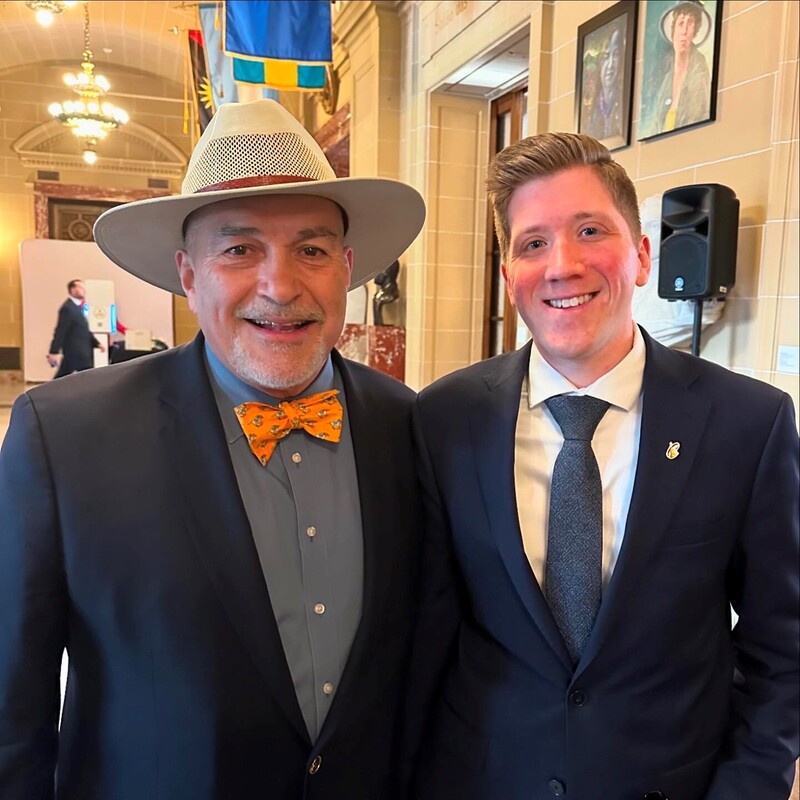

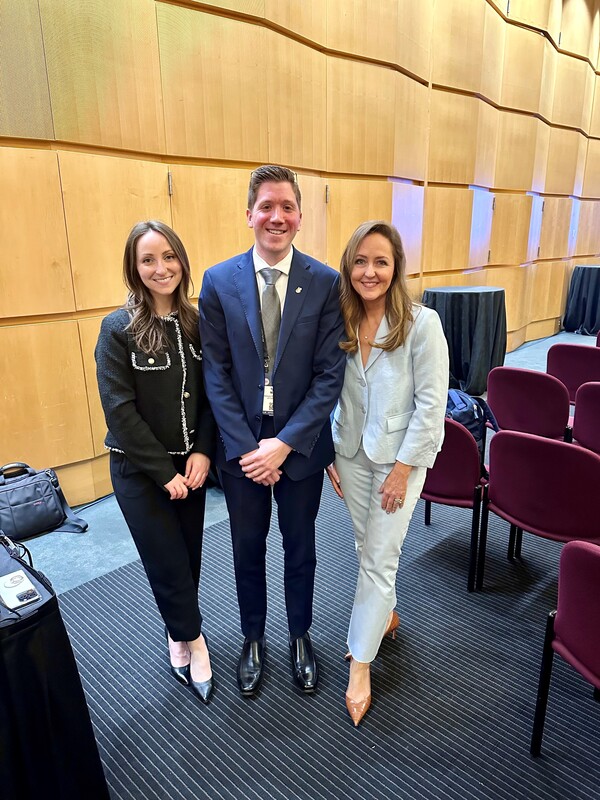

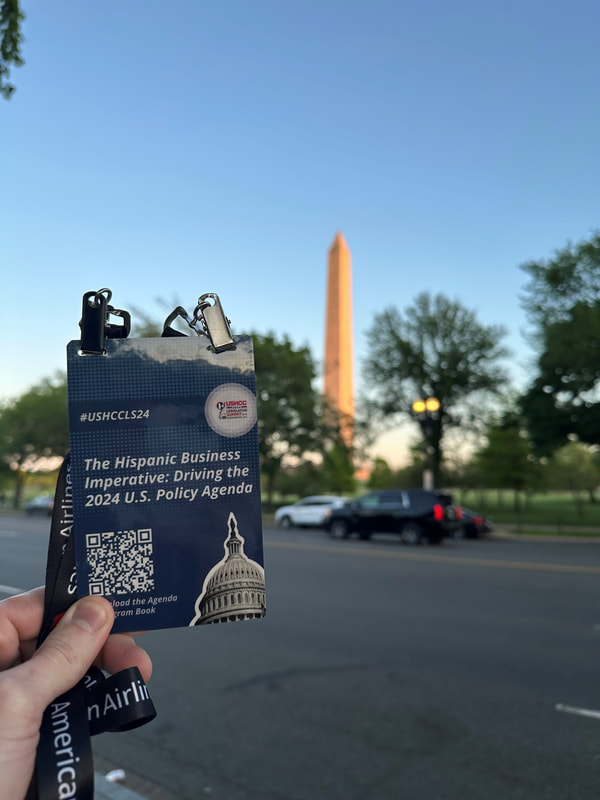



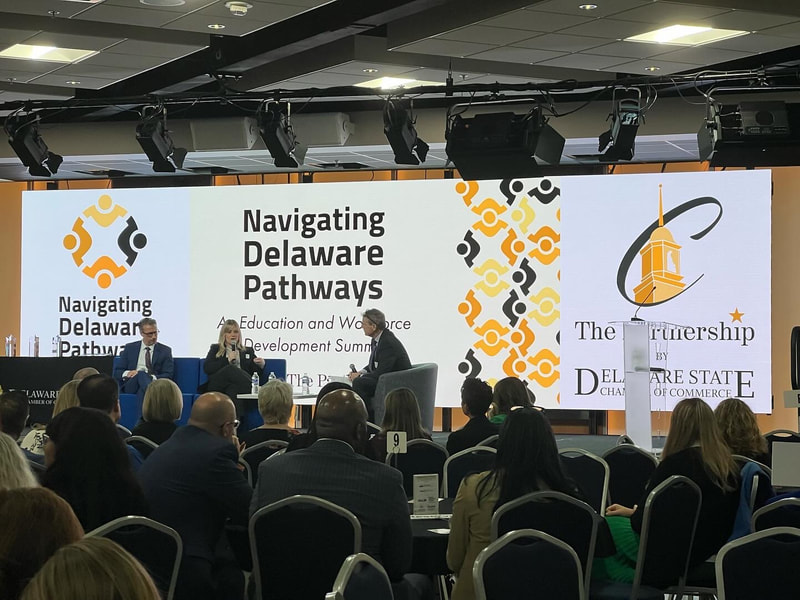
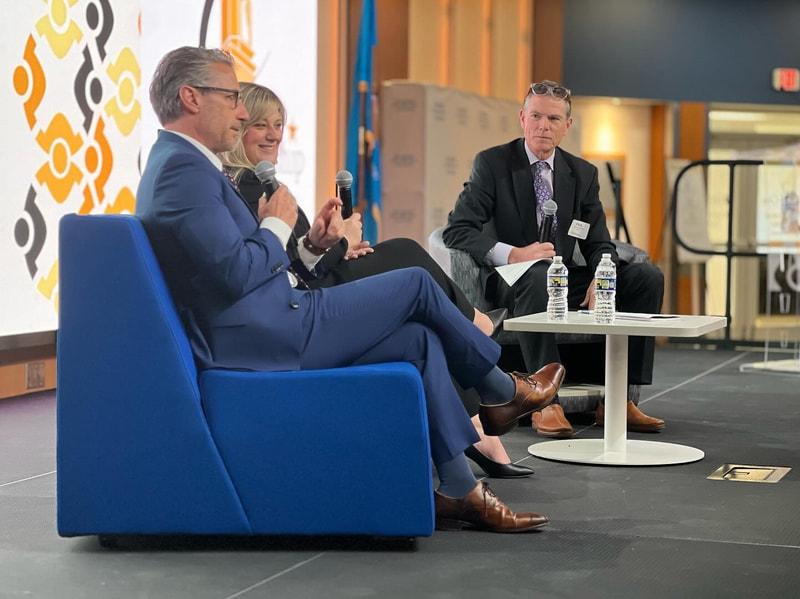
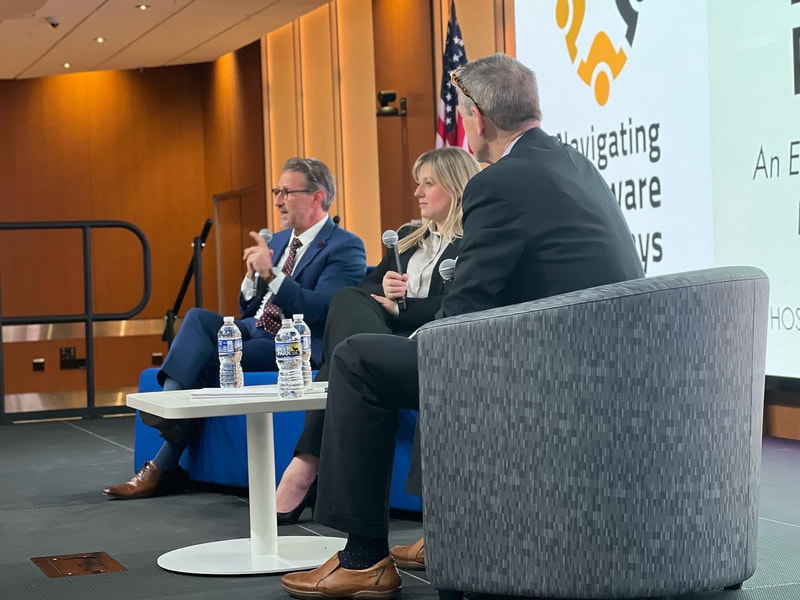
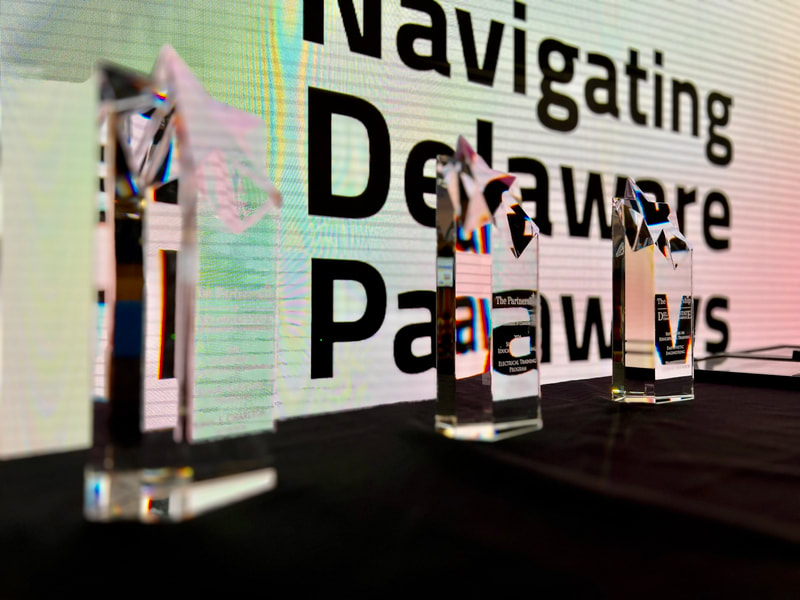
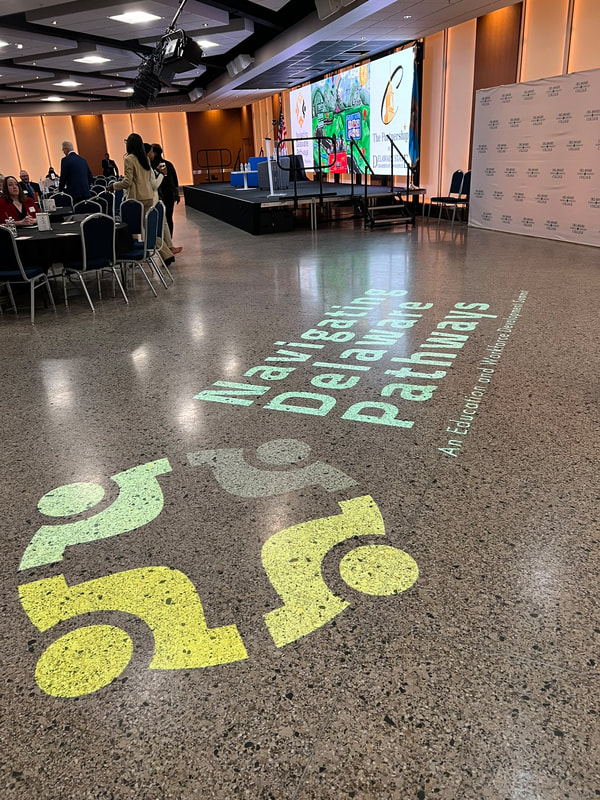
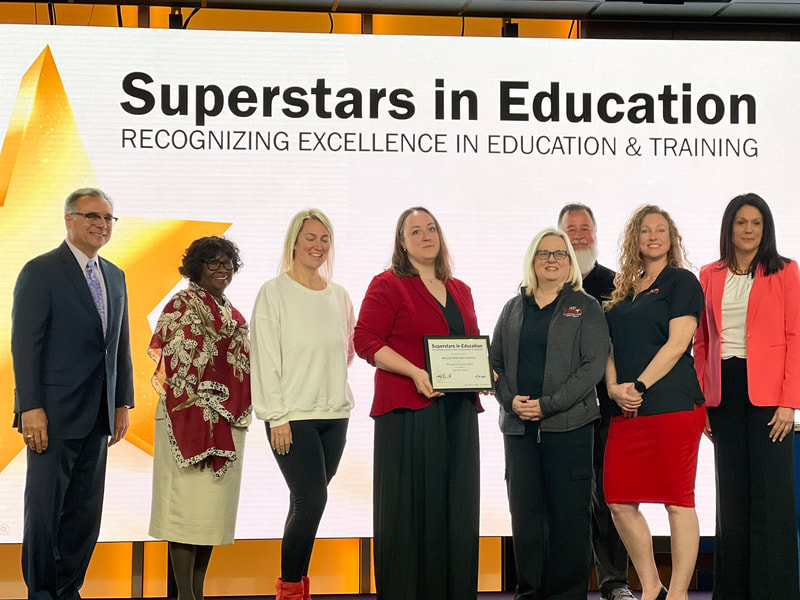






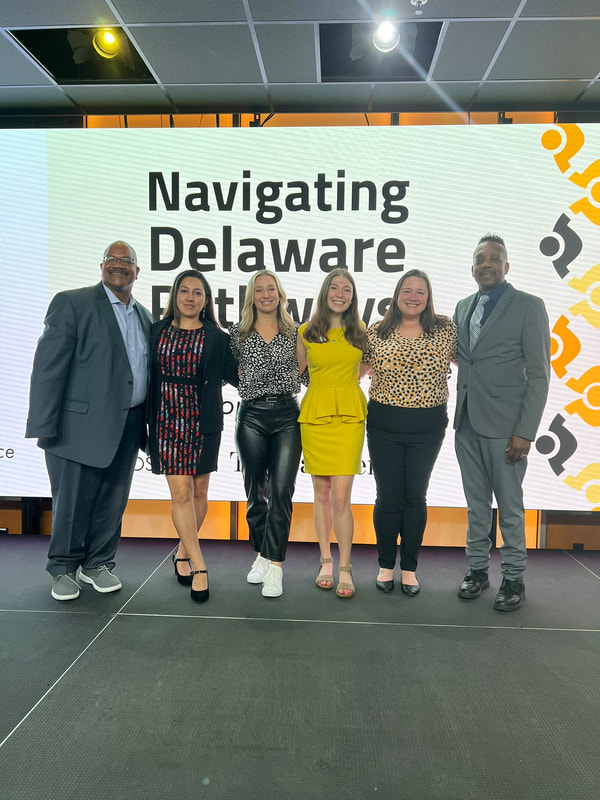

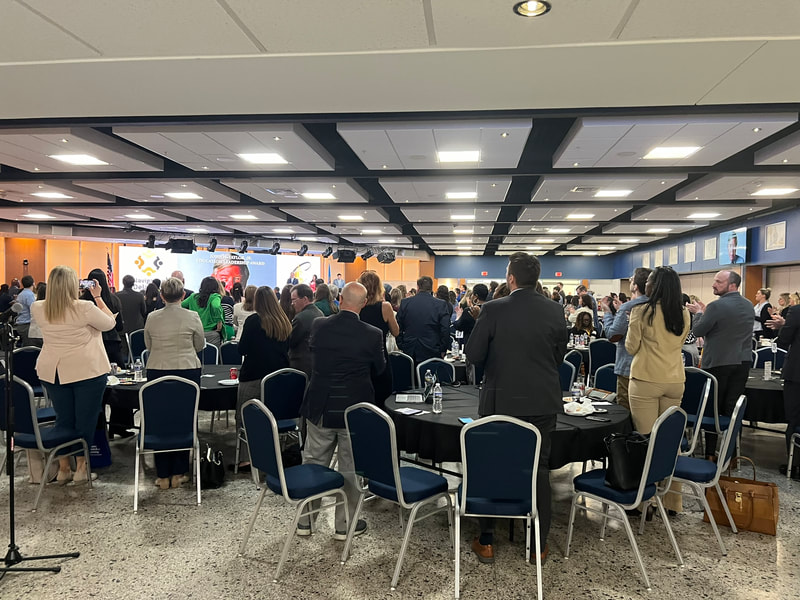

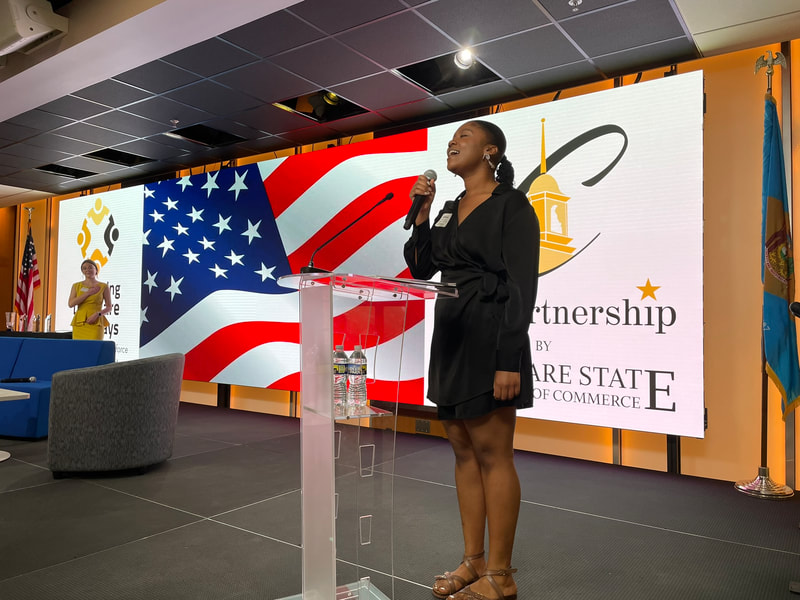


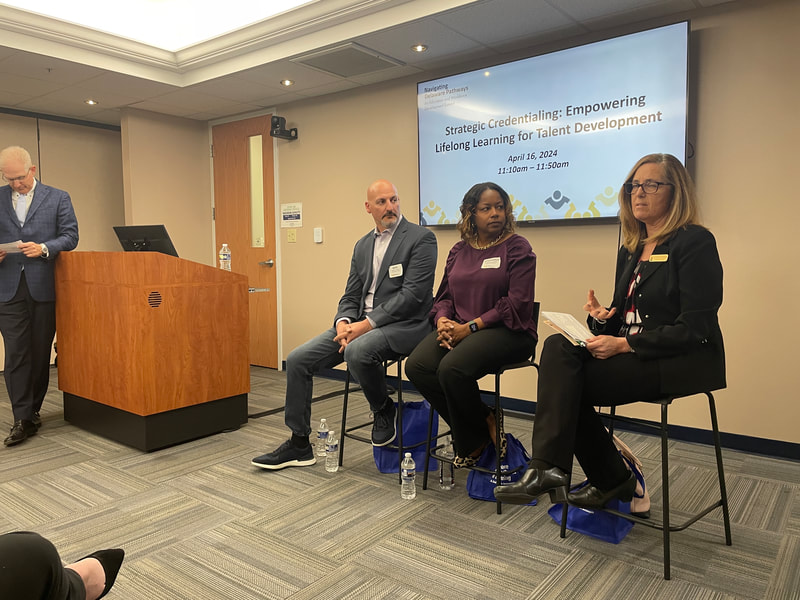

 RSS Feed
RSS Feed